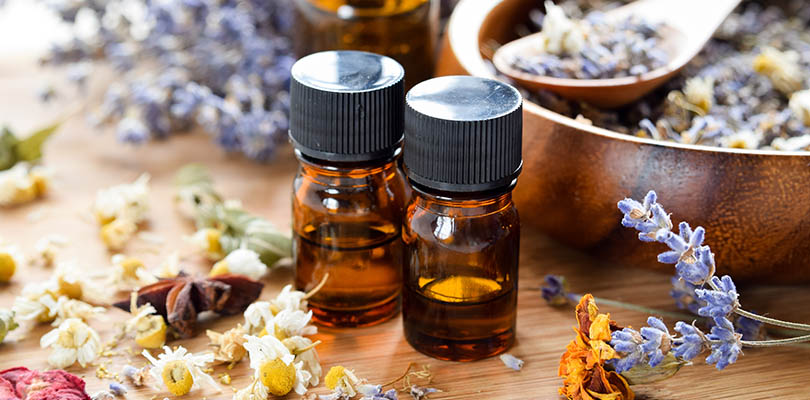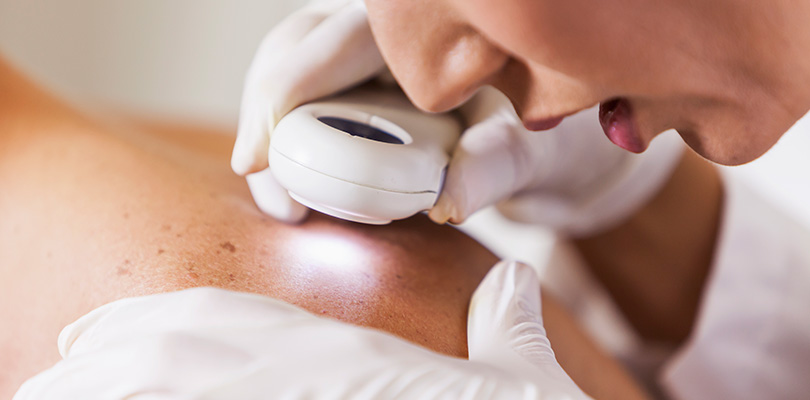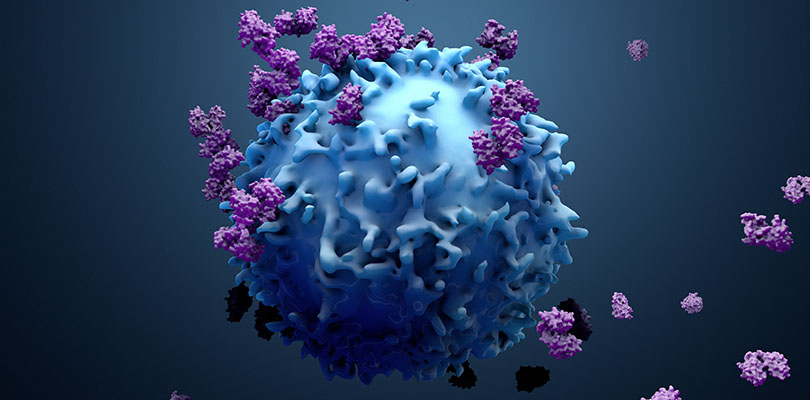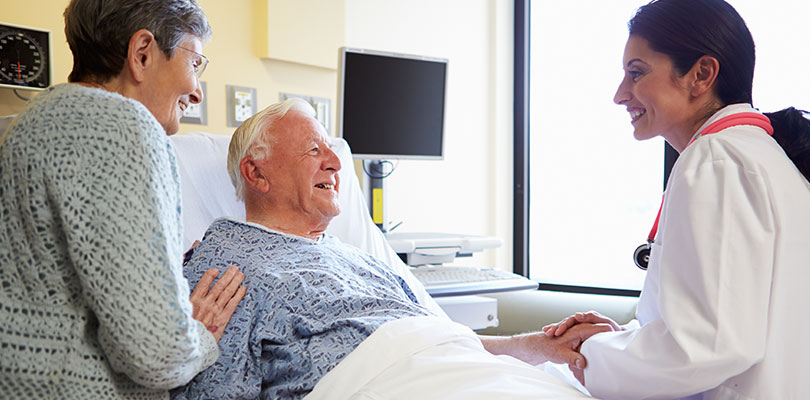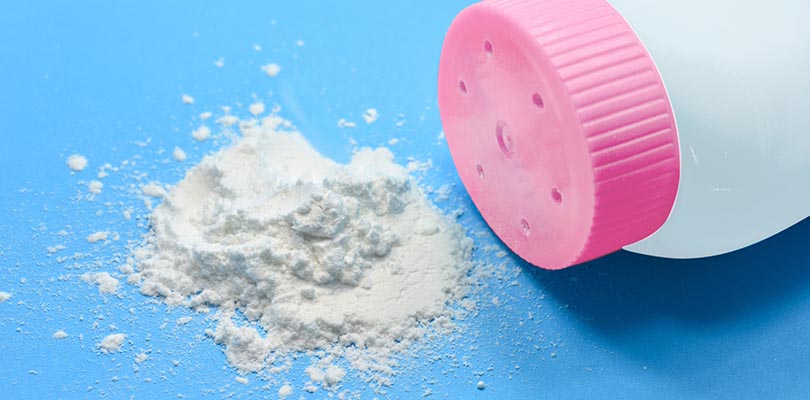Essential Oils for Cancer Patients
No roadmap shows the best way to navigate your cancer treatment.
Your type of cancer and how your body responds to treatment are specific to you as an individual. While your physician/oncologist has your recovery in mind, holistic approaches, such as aromatherapy, may not be included in your treatment.
Western medicine has come a long way with cancer care and management, however, adding essential oils to your established treatment plan may be worth considering.
Essential Oils and Cancer Research
Fragrance can be soothing and promotes powerful effects on your physical and mental state. There is a reason that we feel better when we are outside amongst nature; aromatherapy uses concentrated natural oils from flowers, leaves, roots, and other parts of a plant to enhance your well-being.
The oils enter your body through the olfactory nerves in your nose and transmit to your brain. Specific oils can lower stress, boost energy, alleviate headaches, evoke pleasant memories, relieve pain, or help in many other ways.
The use of essential oils has been in practice for hundreds of years. We’re at a point where it may be beneficial to further research the possibility for plants to provide a solution to cancer.
Rudimentary studies show great potential for there to be medicinal properties of various herbs and plants. In addition to medication and chemotherapy, a holistic approach may be an integral – yet overlooked – part of cancer treatment.
Essential oils have shown to be effective at managing the side effects of cancer and its treatment (which comes with its troubles). Studies have been conducted on the best essential oils for cancer patients; while it is still in the experimental and research phase, properties of some essential oils may be worth trying.
How to Use Essential Oils for Cancer
To inhale the aroma, put the oil into your diffuser, mix it with a carrier oil and rub it into your skin, or add it to your bath.
Some of the best essential oils suggested for cancer patients are frankincense, clary sage, lavender, citrus oils, lemongrass, myrrh, peppermint, and spearmint.
Frankincense
Some contend that this is the most potent essential oil on the block. The health benefits of frankincense help treat issues in the areas of digestion, the immune system, oral health, stress/anxiety, and respiratory concerns.
Several forms of frankincense have the potential to fight cancer; recent studies advocate that this essential oil both kills cancer cells and promotes healthy growth in the surrounding cells.
Frankincense also helps manage the side effects of typical cancer treatments due to its immunity-assisting properties.
Clary Sage
Don’t let the price tag on this oil deter you; it reflects the oil’s many uses and advantages and offers immediate positive results.
It is used as a painkiller and antiseptic to help protect the body against infection, calm the nervous system, and fight off depression and insomnia. Clary sage also stimulates hair growth and promotes healthy skin.
Sclareol, part of the genetic makeup of sage, has shown some optimistic anti-cancer effects. It may help induce cancer cell death through apoptosis which more-or-less causes the cancer cell to self-destruct and stops the spread of cancer.
Lavender
As a natural antioxidant, lavender is considered a super healer by boosting immunity, relieving pain, and improving blood circulation.
It reduces distress, agitation, sadness, and grief. Its calming effect helps relieve tension and anxiety; these relaxant properties help induce sleep and treat insomnia.
The oil provides pain relief to the muscles, joints, and backache. Lavender oil can also be used in the form of vapor to help treat respiratory problems.
There has been significant research on lavender’s influence on cancer prevention – like clary sage, studies have indicated a link from lavender to cancer cell apoptosis.
The right story can do a lot of good for your feelings and your perspective. You may even find some reassurance and resolution in these movies about cancer.
Citrus Oils
Fresh smelling citrus oils relieve stress and assist in the body’s immunity.
Bergamot is used to alleviate stress/anxiety, depression, and helps treat skin infections (however, do not apply this directly to the skin without diluting it first).
Lemon helps boost your immune system, treats headaches and fever, as well as enhances your mood.
Citrus oils may also prevent tumor growth by inhibiting beta-signaling pathways. For cancer patients, a unique component of citrus oils is d-limonene which is a confirmed cancer-fighting agent.
Lemongrass
In aromatherapy practice, this oil is used for pain relief, reduces depression, inhibits bacterial infections, has antiseptic properties, and has an astringent feature that helps speed up blood clotting and prevents hair loss.
As this oil increases the frequency of urination, it also removes toxins from the body and helps clean the kidneys.
There have been promising studies indicating that lemongrass oil has anticancer activity and causes loss in tumor cell viability.
Myrrh
Myrrh is another essential oil that is diverse in symptom treatment and prevention. It is used to prevent microbial infection and help treat infection of wounds.
The benefits of myrrh include strengthening of your internal organs and muscles, fights viral and fungal infections, improves digestion, relieves excess mucus and phlegm, protects the systems and organs of your body, wards off inflammation and protects the circulatory system from toxins.
Myrrh should not be used in excess and blends well with frankincense and lavender.
Peppermint and Spearmint
Mint isn’t just for tea anymore. Peppermint and spearmint have both been used as an energy boost for a long while, but their effects stretch beyond this one perk.
In the practice of aromatherapy, mint has been used for depression and symptoms of anxiety. Both of these strains of mint have been used to overcome symptoms of nausea and vomiting (an unfortunate side effect of undergoing chemotherapy).
Discuss With Your Doctor First
There are several other essential oils out there that can assist with the holistic care of cancer patients. If you do decide to try aromatherapy, be sure to use quality oils and do your homework regarding proper use.
Essential oils are merely a suggestion to add to your physician-established cancer treatment. At the very least, they will help you with stress relief and surround you with comforting scents.
You are the one that holds the roadmap for your cancer treatment. There are many routes available to get to the same destination, so pick the treatment plan that suits you best.
Find more essential oils for cancer patients on NewLifeOutlook.
